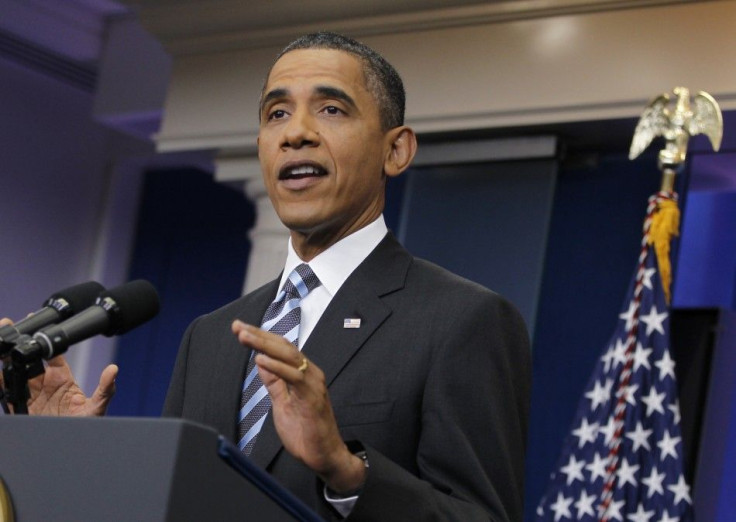Obama: Americans Back Me, Not GOP, on Debt Deal

Analysis
President Barack Obama again Friday reiterated his preference for a grand bargain -- a large budget deficit reduction package that includes both spending cuts and revenue increases, tied to an increase in the national debt ceiling.
Obama said recent polls indicated the American public backs his balanced approach to the debt deal.
My Republican friends have said that they're not willing to do revenues, and they have repeated that on several occasions, Obama said a White House news conference Friday. My hope, though, is that they're listening not just to lobbyists or special interests here in Washington, but they're also listening to the American people. Because it turns out, poll after poll, many done by your organizations, show that it's not just Democrats who think we need to take a balanced approach, it's Republicans as well.
A Gallup Poll conducted July 7-10 of 1,016 adults indicated that 68% of Republicans want the deficit reduction package to contain at least some tax increases. Among Independents, 71% want some tax increases; among Democrats, 85 percent. The poll has a margin of error of +/- 5 percentage points.
However, so far polling numbers have had little impact on the stance of two key members of Congressional Republican Leadership, House Speaker John Boehner, R-Ohio, and House Majority Leader Eric Cantor, R-Va., who remained opposed to a revenue increase, and on Friday reiterated their call to cut the budget deficit only via spending cuts.
Obama and Congressional Republicans have until the end of August 2 to raise the U.S. debt ceiling from its current $14.29 trillion level to enable the government to pay its bills and service any debt coming due.
If the debt ceiling is not raised, the U.S. Government will default on its debt -- an event that economic and monetary officials agree would, at mimimum, be counter-productive for economic growth, and that could trigger a series of cascading sales and bond market trumoil akin to the panic that rocked financial markets during the acute stage of the financial crisis in the fall 2008/winter 2009.
Political/Public Policy Analysis: Score the day a mulligan, with the Boehner and Obama statements cancelling eachother out.Therefore, with no change in the Washington mood, on a scale of 0 to 100 percent, put the likelihood of a U.S. Government default at 30 percent on Friday afternoon, the same as earlier in the day.
© Copyright IBTimes 2024. All rights reserved.





















